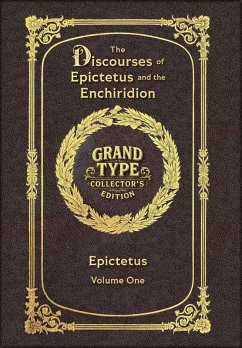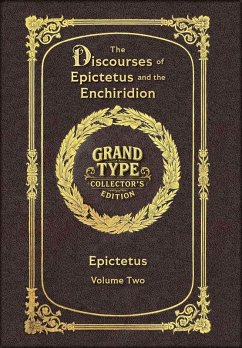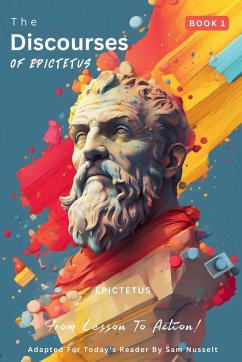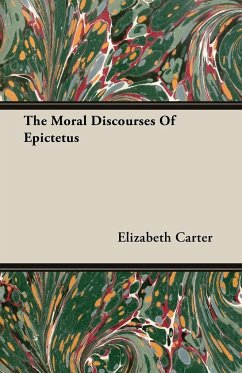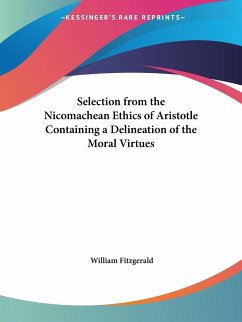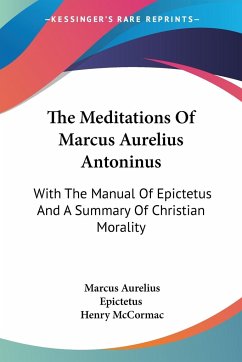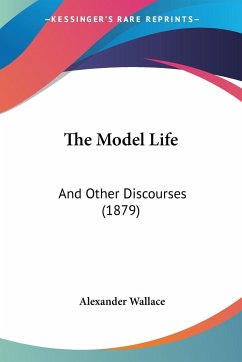
A Selection From The Discourses Of Epictetus With The Encheiridion
Versandkostenfrei!
Versandfertig in 1-2 Wochen
22,99 €
inkl. MwSt.

PAYBACK Punkte
11 °P sammeln!
A Selection From The Discourses Of Epictetus With The Encheiridion is a book that contains a collection of teachings by the ancient Greek philosopher Epictetus. The book is divided into two parts, the first being a selection of Epictetus' discourses, which were transcribed by his student Arrian. These discourses cover a wide range of topics, including ethics, morality, and the nature of reality. The second part of the book is the Encheiridion, which is a short manual on Stoic philosophy that was also written by Epictetus. The Encheiridion provides practical advice on how to live a virtuous lif...
A Selection From The Discourses Of Epictetus With The Encheiridion is a book that contains a collection of teachings by the ancient Greek philosopher Epictetus. The book is divided into two parts, the first being a selection of Epictetus' discourses, which were transcribed by his student Arrian. These discourses cover a wide range of topics, including ethics, morality, and the nature of reality. The second part of the book is the Encheiridion, which is a short manual on Stoic philosophy that was also written by Epictetus. The Encheiridion provides practical advice on how to live a virtuous life, and it has been widely read and studied by philosophers and scholars throughout history. Overall, this book is an excellent introduction to the teachings of Epictetus and the Stoic philosophy that he espoused.This scarce antiquarian book is a facsimile reprint of the old original and may contain some imperfections such as library marks and notations. Because we believe this work is culturally important, we have made it available as part of our commitment for protecting, preserving, and promoting the world's literature in affordable, high quality, modern editions, that are true to their original work.



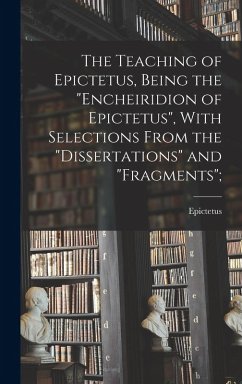
![Enchiridion (with a Selection from the Discourses) [Translated by George Long with an Introduction by T. W. Rolleston] Cover Enchiridion (with a Selection from the Discourses) [Translated by George Long with an Introduction by T. W. Rolleston]](https://bilder.buecher.de/produkte/45/45760/45760746n.jpg)
